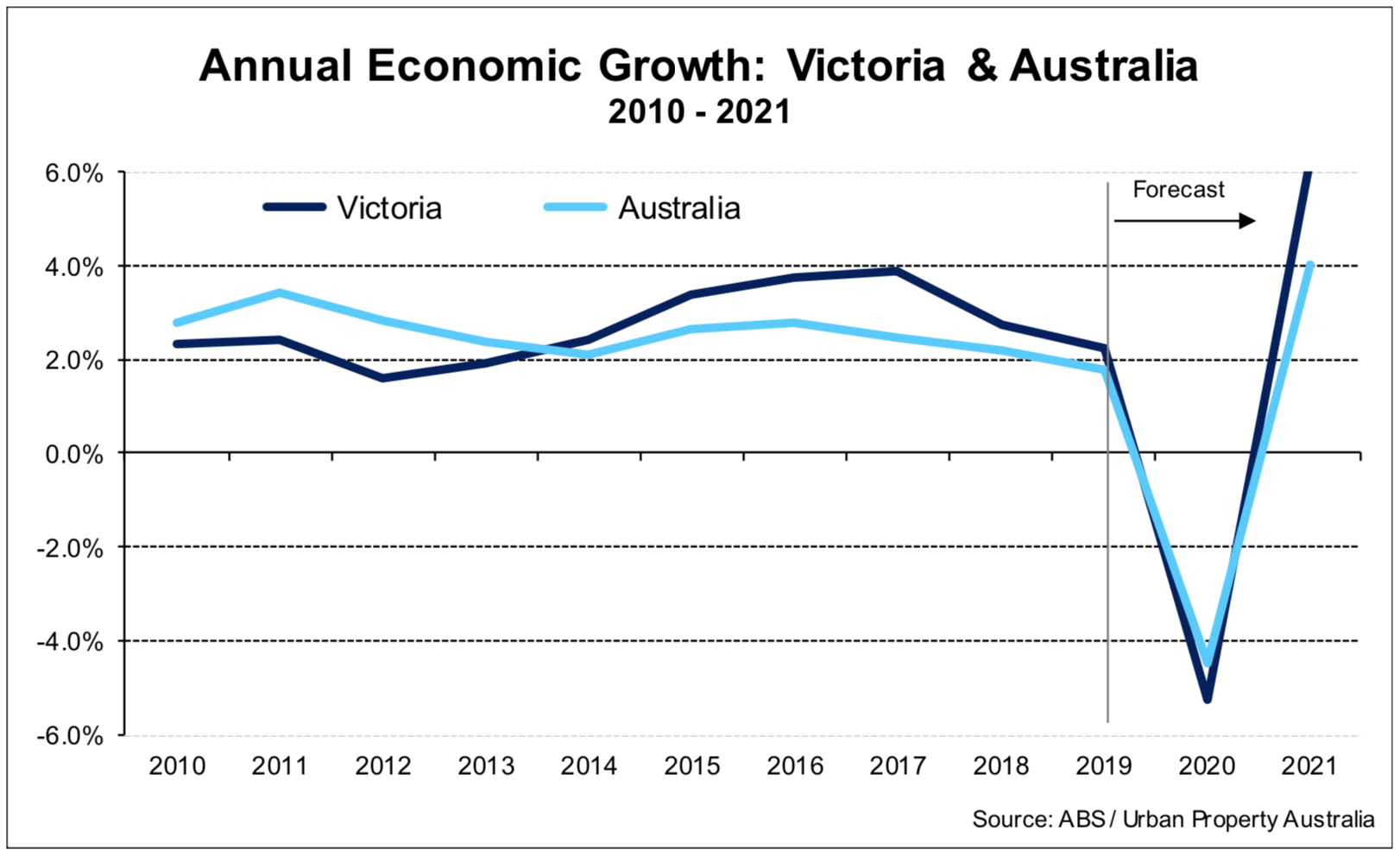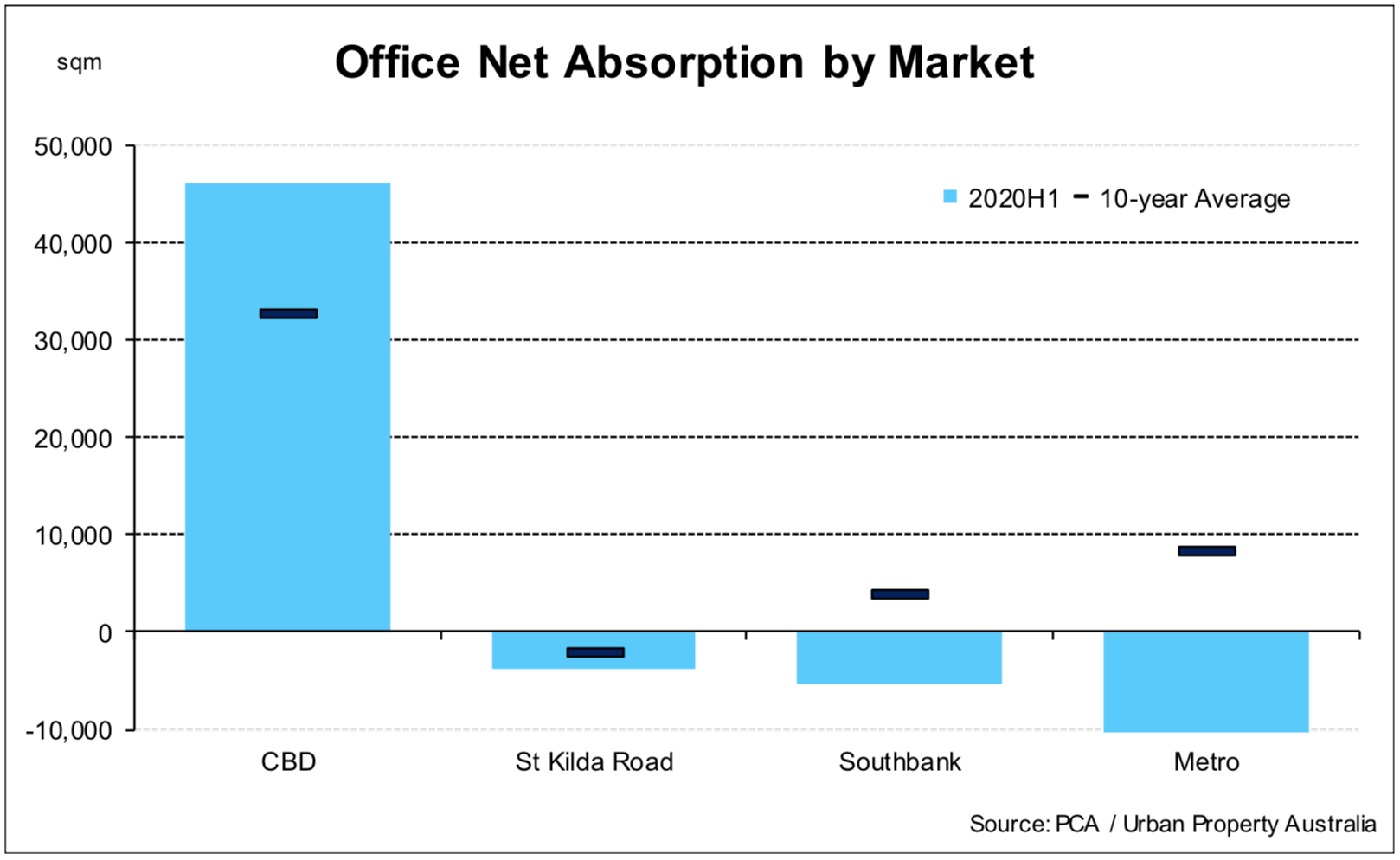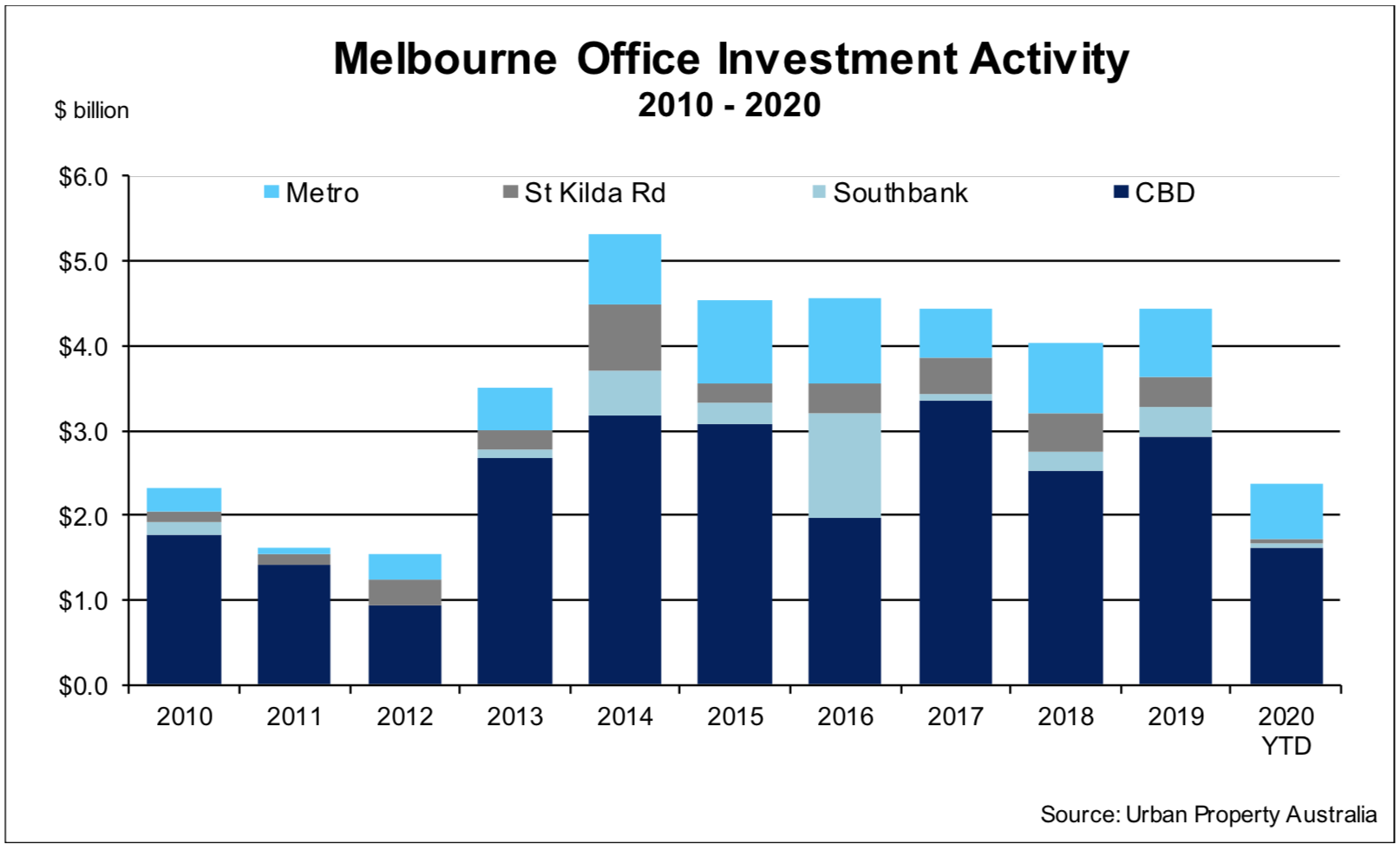Urban Property Australia dissects the effect of the pandemic on the Melbourne property market
Contact
Urban Property Australia dissects the effect of the pandemic on the Melbourne property market
World’s longest lockdown stymies leasing demand but sales activity solid for Melbourne’s metropolitan office market says Urban Property Australia Founder and Managing Director, Sam Tamblyn.
To contain the spread of the coronavirus, the Victorian government imposed one of the most stringent lockdown measures in the world. While COVID cases have fallen substantially, economic activity has contracted dramatically with Melbourne impacted more than any other Australian city. Urban Property Australia dissects the effect of the pandemic on the property market to date and what the “new normal” may look like post-COVID.
Urban Property Australia Founder and Managing Director, Sam Tamblyn said with Melbourne still in lockdown 2020 to date, leasing activity across the Melbourne metropolitan office market was relatively subdued with total volume of leases significantly below the 10-year average.
Mr Tamblyn added, given the economic uncertainty globally, leasing decisions of tenants have been delayed.

Mr Tamblyn said, tenant demand in the Melbourne office market in 2020 has been crushed as a result of the lockdown, the impact of the pandemic won’t be fully realised until 2021. With some tenant’s experiencing significant financial hardship potentially leading to an overall reduction of tenants.
Around 160,000 Victorians lost work in the June quarter, among 710,000 people Australia-wide. In the last two months 73,000 jobs have been lost in Victoria. In comparison 172,000 jobs have been created across the rest of the nation.
From an unemployment rate of 5.2% in March 2020, Victoria’s unemployment rate has now risen to 6.7% as at September 2020. Reflecting the softening business investment environment, job advertisements in Victoria have fallen by 45% over the year.
Urban Property Australia recorded negative net absorption in the Melbourne metropolitan office market, as several tenants relocated into other markets.

Reflecting the subdued tenant demand, prime rents have fallen across the Melbourne metropolitan office market for the first time in five years.
Metropolitan office rents have been adversely impacted by an increase in incentives and a decrease in face rental levels.
Looking ahead, Urban Property Australia forecasts that prime rents will remain steady over the remainder of 2020 as tenants seek quality space however secondary rents will ease due to the continued economic uncertainty and increase in unemployment as a result of the impact of the COVID-19 pandemic.
Despite subdued leasing activity, Urban Property Australia has recorded $640 million of Melbourne metropolitan office sales in 2020 to date, already surpassing the 10-year annual average.
Mr Tamblyn said, “purchaser interest in the metropolitan office market has been solid this year, with the market accounting for 27% of all office sales in Melbourne, its highest share in 10 years.”
While both prime and secondary metropolitan office yields remain at historical lows at 5.4% and 6.5% respectively, Urban Property expects that this will be the cyclical low of the yield compression cycle with yields having steadily compressed since 2013.
Given the continued economic uncertainty resulting from COVID-19, we expect investors will have a greater focus on income security and tenant covenant and we expect prime and secondary yields to diverge in the medium term.
Mr Tamblyn added, predominately as a result of the recent completions, the vacancy rate of the Melbourne metropolitan office market has increased to 9.2% as at September 2020, its highest level in 10 years.
Urban Property Australia research forecast that the vacancy rate of the metropolitan office market will continue to rise over 2020 and 2021 given the significant amount of uncommitted new stock scheduled for completion this year.
Similar to this:
Economic crisis casts a shadow over Australia’s CBD office markets - JLL
Victorian Commercial Real Estate re-opening for inspections and Auctions welcomed by REIV
Surga data indicates V-shaped pandemic recovery for commercial real estate sector








